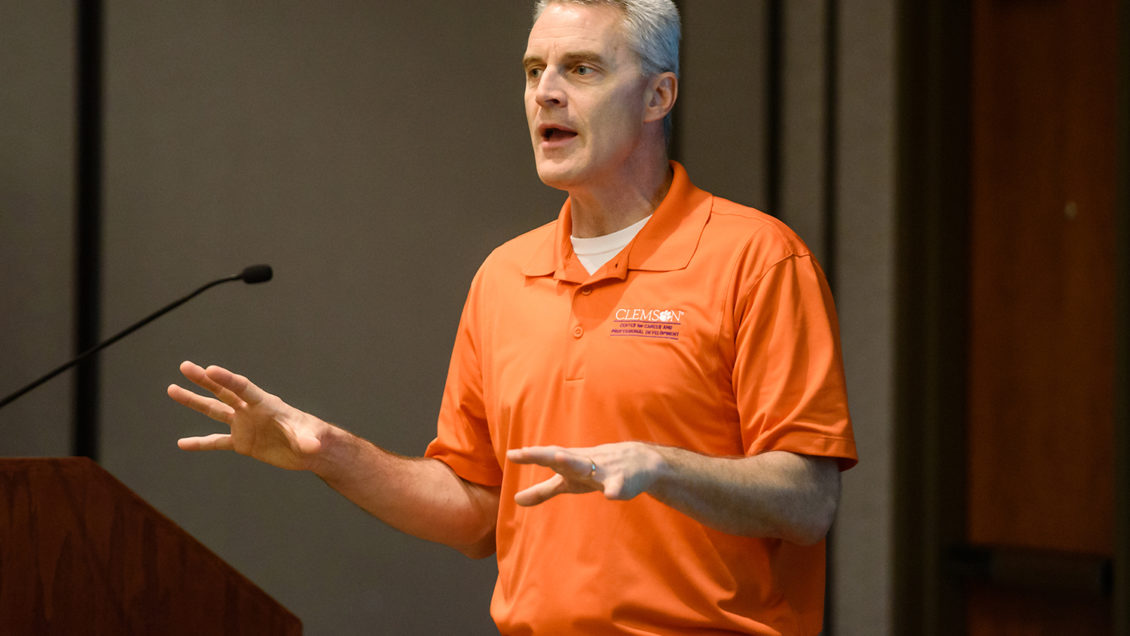The Clemson University Center for Career and Professional Development (CCPD), ranked No.1 in Best Career Services category in 2020 by the Princeton Review guide, has made its own share of changes in the midst of the coronavirus pandemic.
In response to the University’s transition to remote learning, the CCPD adjusted its services online. The CCPD is separated into three distinct units: The Michelin Career Center (MCC), the University Professional Internship & Co-Op (UPIC) program and the Cooperative Education Program.
Neil Burton, executive director for the CCPD, said preparations for online transition began several weeks before the University made the decision to go fully virtual in mid-March.
“As each unit updated its business continuity plan, we began practicing virtual meetings through platforms such as Zoom and Webex. Our UPIC and co-op program leaders began notifying students and mentors about the possible need for experiential education assignments to be conducted remotely for the remainder of the spring semester,” Burton said.
With its services online, the CCPD uses social media platforms, targeted emails and reminders to let students, faculty and staff know about the availability of these services while continuing to engage with them. The staff also emphasized the importance of enhancing other remote experiences, including its website.
“Once things became virtual, the CCPD website was overhauled to make for easier navigation. FAQs were developed for popular programs and services so visitors can find information quickly and easily,” Burton said.

CCPD staff also worked through the transition in their respective units. The Michelin Career Center reached out to employers encouraging them to post job opportunities and to conduct virtual interviews, information sessions and webinars for job openings. The staff collaborated with campus offices to offer workshops on self-care, mental health, and working remotely.
The Career Development team moved student appointments online and increased the number of online workshops being offered to address concerns as summer job offers began to disappear. Several new resources, including tip sheets, brand building webinars, job searching during COVID-19, working remotely and salary negotiations were also offered.
For faculty and staff, the UPIC team created online resources for campus mentors to assist with the transition to remote work. Advisers created a process to facilitate virtual site visits to assess how students are performing in their various assignments.
“The co-op team continues to monitor more than 400 students on assignment, but the bigger challenge for CCPD has been assisting students seeking to begin assignments this summer and fall,” said Burton.
He also credits the CCPD staff for their initiative in providing the best online services they can for students, faculty and staff.
“Our staff attended numerous webinars and workshops to stay abreast of developing trends and to learn about new ideas as higher education adjusts to delivering services virtually. We are encouraging students to think about transferable skills they have the opportunity to develop in the current environment and how these skills can be applied to previously unconsidered career fields,” Burton said.
“As the job market tightens, students may not find the ’ideal position’ available to them, but by encouraging them to think and prepare more broadly, we hope to situate them for long-term career success,” Burton said.
As the CCPD continues providing its nationally-acclaimed services, Burton and the rest of the staff have learned a number of lessons throughout this online transition. It’s also pushed them to further explore ways to prepare students during an uncertain time in their lives.
“Patience and flexibility have been the biggest lessons here. There is a greater comfort level from staff using technologies like Zoom to deliver services to students away from campus in need of assistance,” Burton said.
“We’re continually evaluating how experiential education assignments might incorporate more virtual elements in the future and what new technologies might be valuable to students preparing themselves for life after Clemson.”
Get in touch and we will connect you with the author or another expert.
Or email us at news@clemson.edu

